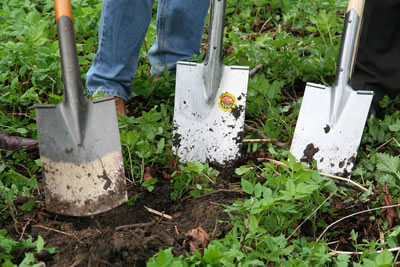4 Everyday Soil Problems (And How to Fix Them)
4 Everyday Soil Problems (And How to Fix Them)

Whether it relates to nutrient deficiency or unstable pH levels, there are plenty of issues that can have a negative impact on the garden soil. However, with the right care and treatment, it is possible to eliminate most of these issues within a relatively short period of time. Here are four of the most common problems to impact the soil:
High-saline soil
Soil that starts to have issues with high-saline can have a negative influence on the fertility of the soil. This type of problem is caused by the water table not being far enough away from the surface. An alternative cause relates to salt spray that impacts properties nearly the coastline. A careful treatment program is necessary to help restore the poor condition of the soil. A great treatment method to get going is to apply a thick layer of mulch which has the benefit of reducing salinity and water usage. But, make sure to use one of the organic or natural mulch materials. Other options include growing the plants that are salt-tolerant, which is quite effective at lowering the water table. The more extensive option includes installing a drainage system underground to help clear the excess water. Fertilizer can play a role in controlling the high-saline soil. A good quality organic fertilizer can help to slowly lower the salinity level and help to improve the soil over timeCompacted soil
It helps to give the compacted soil a refresh every so often to improve its ability to absorb nutrients and water. This garden soil soon gets quite compacted once it gets walked on at regular intervals. The best remedy to improve the soil structure is to add in an organic matter or gypsum.-2.jpg)
Revive the topsoil
Over time the healthy topsoil can be lost. For instance, after a long spell of hot weather the topsoil can easily be blown away as a result of gusty wind. Use a treatment similar to compacted soil and apply a thick layer of an organic or natural mulch material.Adding nutrients back
Low-quality soil with minimal nutrients is a major reason for the plant life to appear unhealthy. Susceptible to insect attack or disease, yellowing of foliage and or stunted growth is all related to the overall quality of the soil. The soil is easily revived with the right application of fertilizer or compost. Make sure to use a well-balanced fertilizer that matches the specific needs of your garden.Other Articles

4 Tips to Keep Your Gutter System Clean
A well fertilized garden is the best course of action for the vibrant and healthy plant life.

3 Tips to Keep Your Garden Thriving
Whether you are the complete beginner or the expert gardener, you will certainly benefit from the proper tips to keep the outside space well-maintained and blooming.

How to Revitalize the Plants after a Parasite Attack
The best course of action to treat the diseased plant life is to correctly identify the parasite or other issues.
